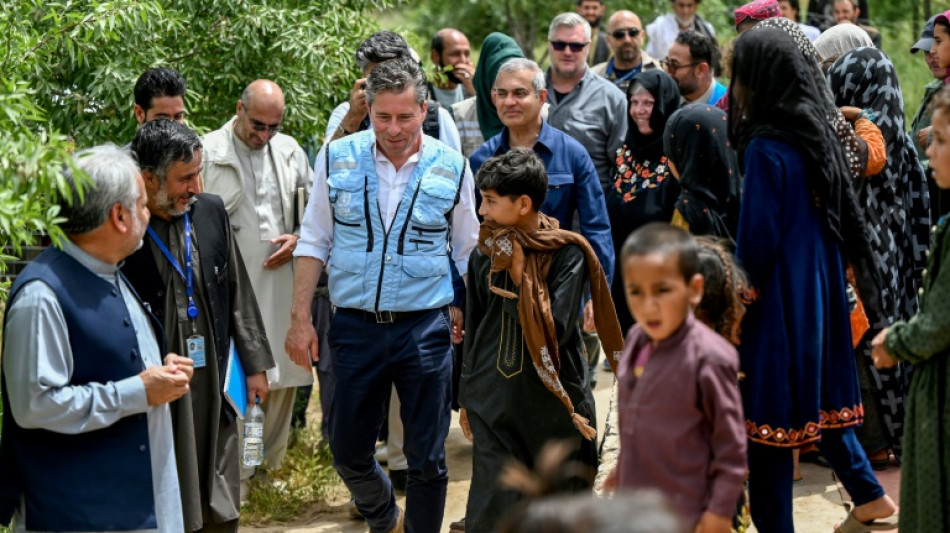
-
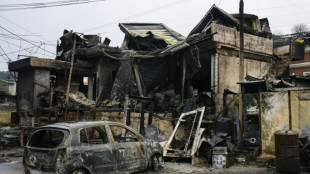 Climate change made fire conditions twice as likely in South Korea blazes: study
Climate change made fire conditions twice as likely in South Korea blazes: study
-
Amorim says not even Europa League glory can save Man Utd's season

-
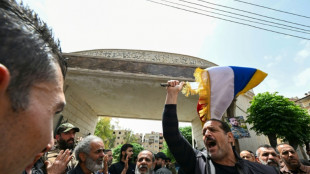 Syria reports Israeli strikes as clashes with Druze spread
Syria reports Israeli strikes as clashes with Druze spread
-
Ukraine, US say minerals deal ready as suspense lingers
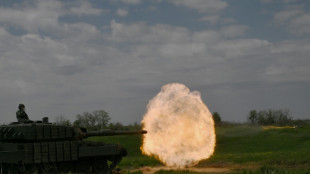
-
 Everything is fine: Trump's cabinet shrugs off shrinking economy
Everything is fine: Trump's cabinet shrugs off shrinking economy
-
Chelsea boss Maresca adamant money no guarantee of success

-
 Wood warns England cricketers against 'dumb' public comments
Wood warns England cricketers against 'dumb' public comments
-
US economy shrinks, Trump blames Biden
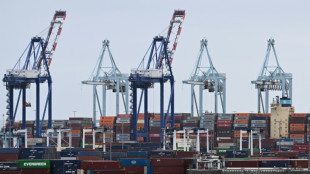
-
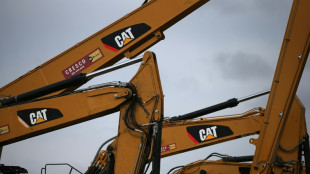 Caterpillar so far not hiking prices to offset tariff hit
Caterpillar so far not hiking prices to offset tariff hit
-
Japan's Kawasaki down Ronaldo's Al Nassr to reach Asian Champions League final

-
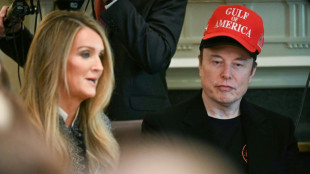 Trump praises Musk as chief disruptor eyes exit
Trump praises Musk as chief disruptor eyes exit
-
Chahal hat-trick helps Punjab eliminate Chennai from IPL playoff race

-
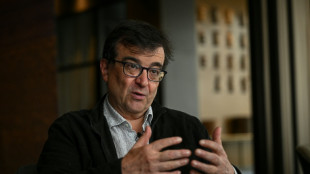 Pope Francis saw clergy's lack of humility as a 'cancer': author
Pope Francis saw clergy's lack of humility as a 'cancer': author
-
Weinstein accuser recounts alleged rape at assault retrial in NY

-
 Piastri heads into Miami GP as the man to beat
Piastri heads into Miami GP as the man to beat
-
US economy unexpectedly shrinks in first quarter, Trump blames Biden
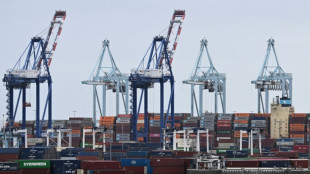
-
 Maxwell likely to miss rest of IPL with 'fractured finger'
Maxwell likely to miss rest of IPL with 'fractured finger'
-
Syria reports Israeli strikes after warning over Druze as sectarian clashes spread
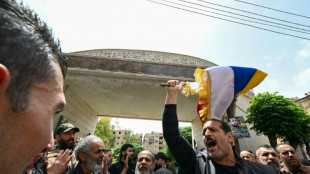
-
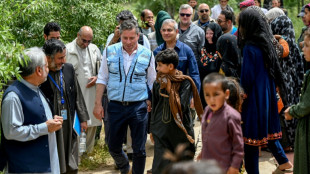 Despite war's end, Afghanistan remains deep in crisis: UN relief chief
Despite war's end, Afghanistan remains deep in crisis: UN relief chief
-
NFL fines Falcons and assistant coach over Sanders prank call

-
 British teen Brennan takes stage 1 of Tour de Romandie
British teen Brennan takes stage 1 of Tour de Romandie
-
Swedish reporter gets suspended term over Erdogan insult
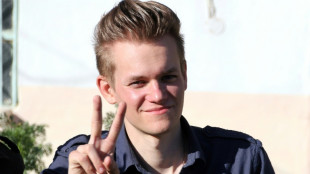
-
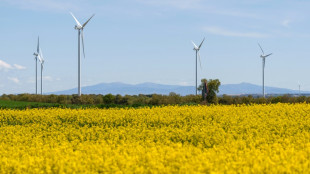 Renewable energy in the dock in Spain after blackout
Renewable energy in the dock in Spain after blackout
-
South Africa sets up inquiry into slow apartheid justice
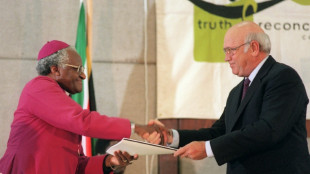
-
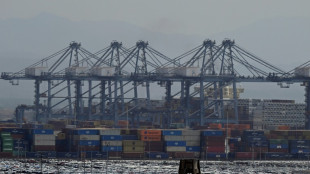 Stocks retreat as US GDP slumps rattles confidence
Stocks retreat as US GDP slumps rattles confidence
-
Migrants' dreams buried under rubble after deadly strike on Yemen centre
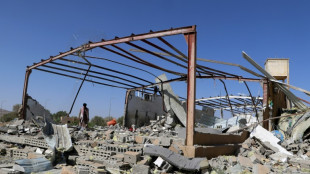
-
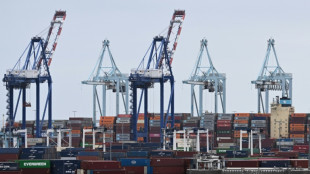 Trump blames Biden's record after US economy shrinks
Trump blames Biden's record after US economy shrinks
-
UK scientists fear insect loss as car bug splats fall
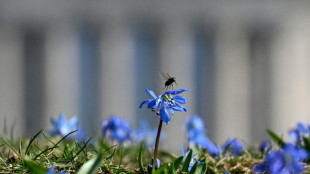
-
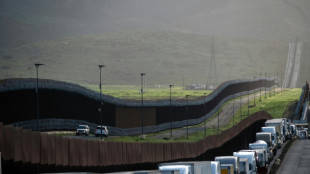 Mexico avoids recession despite tariff uncertainty
Mexico avoids recession despite tariff uncertainty
-
Rwandan awarded for saving grey crowned cranes
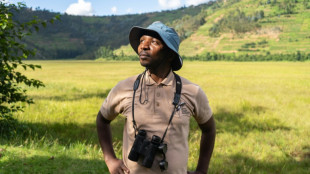
-
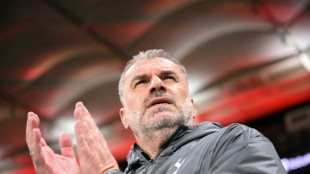 Spurs have 'unbelievable opportunity' for European glory: Postecoglou
Spurs have 'unbelievable opportunity' for European glory: Postecoglou
-
Microsoft president urges fast 'resolution' of transatlantic trade tensions

-
 Poppies flourish at Tower of London for WWII anniversary
Poppies flourish at Tower of London for WWII anniversary
-
US economy unexpectedly shrinks on import surge before Trump tariffs
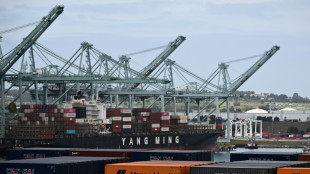
-
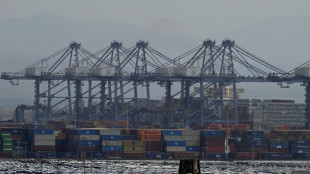 Stocks drop after US economy contracts amid tariffs turmoil
Stocks drop after US economy contracts amid tariffs turmoil
-
US economy unexpectedly shrinks on import surge ahead of Trump tariffs
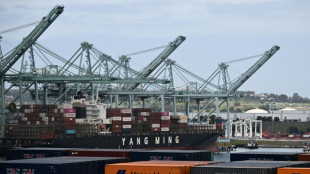
-
 Dravid says Suryavanshi, 14, needs support from fame
Dravid says Suryavanshi, 14, needs support from fame
-
Arsenal can win 'anywhere' says Merino after Champions League defeat by PSG

-
 Bangladesh crush Zimbabwe by an innings in second Test
Bangladesh crush Zimbabwe by an innings in second Test
-
Swiatek recovers against Keys to reach Madrid Open semis
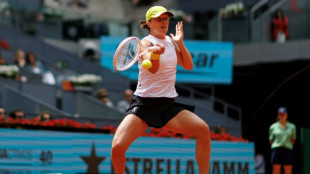
-
 Spurs captain Son out of first leg of Europa League semi-final
Spurs captain Son out of first leg of Europa League semi-final
-
US economy unexpectedly shrinks in first three months of Trump presidency
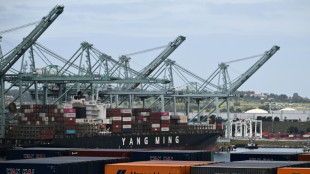
-
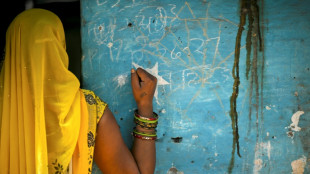 India to ask caste status in next census for first time in decades
India to ask caste status in next census for first time in decades
-
Burkina junta rallies supporters after claimed coup 'plot'
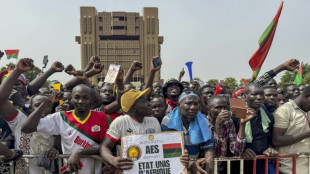
-
 Forest owner Marinakis steps back as European qualification looms
Forest owner Marinakis steps back as European qualification looms
-
US economy unexpectedly contracts in first three months of Trump presidency
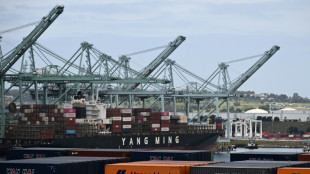
-
 Bilbao will give 'soul' to beat Man United: Nico Williams
Bilbao will give 'soul' to beat Man United: Nico Williams
-
Sweden arrests teen after triple killing
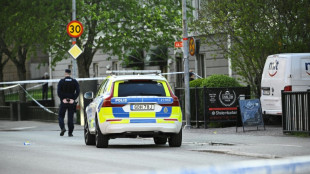
-
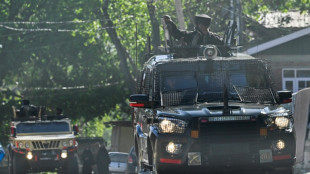 Pakistan says India planning strike after deadly Kashmir attack
Pakistan says India planning strike after deadly Kashmir attack
-
Cardinals lay groundwork for conclave, hope for quick vote


Despite war's end, Afghanistan remains deep in crisis: UN relief chief
Climate change, women's rights, displacement, poverty: Afghanistan remains a priority as it faces overlapping crises, the UN's relief chief Tom Fletcher told AFP on Wednesday, deploring "brutal" aid budget cuts.
"We've identified 17 crises across the world where our engagement is most urgent, most vital. Afghanistan is high on that list," said the United Nations Under-Secretary-General for Humanitarian Affairs in an interview with AFP during a visit to northern Afghanistan's Kunduz province.
Fletcher's visit comes after US President Donald Trump's decision to slash foreign aid sent shock waves across the globe.
Washington had been the top donor to Afghanistan, having spent $3.71 billion in humanitarian and development aid since the Taliban returned to power in 2021 and imposed a severe interpretation of Islamic law.
"We're in a period when we're having to massively prioritise, take brutal choices... literally life and death choices, about where to operate and which lives to save," Fletcher said.
"You can look at Sudan for the scale of the crisis, you can look at Gaza for the intensity, the ferocity of the killing there," he added. "Afghanistan is a different kind of challenge but it's a huge challenge nonetheless."
Climate change is hitting the Central Asian country "particularly hard" and it "will drive the needs even more than conflict will in the period ahead", he said.
"You've got that combined with the existing levels of poverty and these decades of instability and conflict."
- 'Dialogue' on women's rights -
The situation of women's rights in the country adds to the layers of a "building up of crisis upon crisis", Fletcher added.
The Taliban authorities have imposed restrictions on women that the UN has denounced as "gender apartheid".
Women and girls have been banned from education beyond primary school as well as many sectors of work and public spaces.
"I think this particular dynamic around women and girls is something that can surely cut through to even the most hard-hearted and cynical transactional politician right now," Fletcher said.
After meetings with Taliban officials this week in the capital Kabul and the Taliban heartland of southern Kandahar, Fletcher noted the need for "dialogue in order to try and change the mindset" on women's rights.
"It's encouraging to me that people were willing to have the conversation and not have it in a purely defensive way," he said.
Afghan women are particularly affected by humanitarian aid cuts, especially in the health care sector, which has been heavily dependent on foreign support.
In Afghanistan, maternal mortality rates of 620 per 100,000 births and infant mortality rates of 55 children under five per 1,000 births are among the highest in the world, according to UNICEF.
"I challenge anyone who celebrates aid cuts to sit with a woman who has lost her child because she had to cycle for three hours while in labour to get the care that she needed," said Fletcher, after having met Afghan women at a mobile health centre.
- 'Humanitarian reset' -
When Amina, a 28-year-old housewife, fell ill, she walked for an hour and a half to reach the centre in the rural countryside.
"There are no clinics, no doctors who come here, nothing nearby. We don't even have electricity," she told AFP.
The small facility, supported by the local non-governmental organisation JACK and UN agencies, is under strain.
Already overwhelmed, it now has to accommodate patients from US-funded clinics that had to close, as well as Afghans who have been expelled from neighbouring Pakistan since early April.
"The reality with the cuts was that we didn't see the impact straight away," Fletcher said.
"It's now that we're really coming to understand how brutal these cuts are going to be."
Under these conditions, he said, "we're in the process now of a massive humanitarian reset".
"We've got to rediscover that sense of coexistence and care for the most vulnerable people on the planet. I don't think that's gone away just because of a few election results," he said.
"I don't think you can put tariffs on humanitarian action," he added, referring to the trade war recently launched by Trump.
Y.Nakamura--AMWN